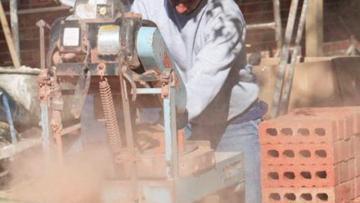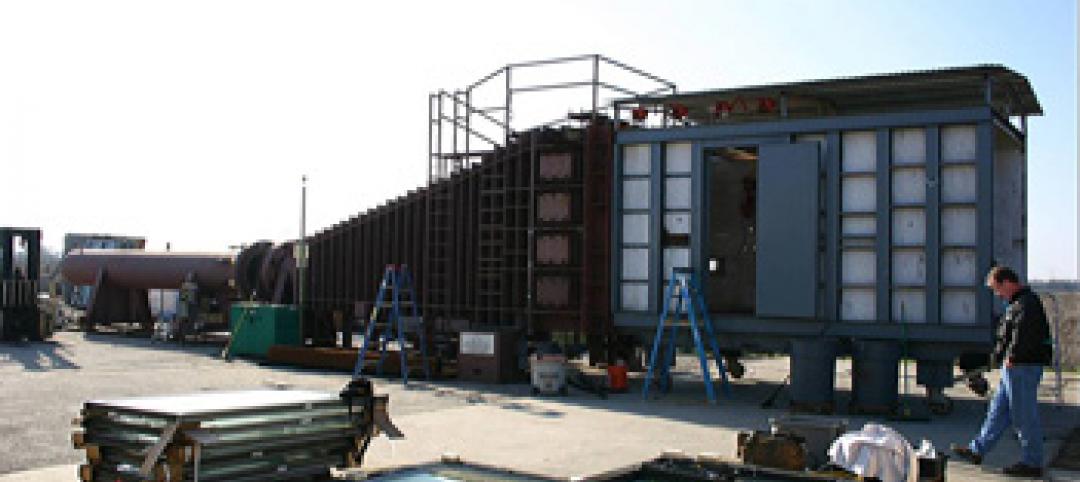OSHA’s proposal to beef up regulations on workers’ exposure to silica dust is generating a lot of controversy. The agency says current rules are outdated, difficult to understand, and inconsistent across industries.
Introduced in August 2013, the proposal would lower allowable levels of crystalline silica in all workplaces, standardize how the dust is calculated, and require medical monitoring for employees exposed to high levels.
OSHA estimates that 688 deaths and 1,585 silica-related illnesses would be prevented every year under the new rules. Opponents charge that the stricter regulations cost too much for the potential benefits. Joseph Brennan, a Cleveland attorney quoted in Crain’s Cleveland Business, said that since 1968, the rate of lung diseases related to silica has dropped by 90%. He indicated that stronger enforcement of existing rules might be a better way for OSHA to handle the issue.
Fred Hubbard Sr., secretary treasurer for the Ohio-Kentucky Administrative District Council of Bricklayers and Allied Craftworkers, said OSHA seems to concentrate enforcement on only the biggest contractors. If a measure is going to impose a lot of costs onto work sites, it should be enforced across the board, he said. The union does support OSHA’s proposed stricter regulations, though.
OSHA has received about 2,000 comments on the proposal. The agency wrapped up public hearings on April 4. No timeline has been released, but OSHA’s final decision could be at least two years away.
(http://www.crainscleveland.com/article/20140413/SUB1/304139997/osha-proposal-is-causing-a-bit-of-a-dustup)
Related Stories
| Dec 4, 2014
Roofing material manufacturers extend research project on sustainable roofing
A coalition of trade groups is sponsoring continued analysis of a reroofing project at the Onondaga County Correctional Facility in Jamesville, New York.
| Nov 26, 2014
Colorado must fix construction defects law, Denver Post says
Colorado's “vexing construction defects law” has hampered the building of new condominiums in the state, according to an editorial in the Denver Post.
| Nov 26, 2014
Cheyenne, Wyoming City Council kills downtown design standards proposal
The Cheyenne, Wyoming City Council voted down a measure that would have implemented design standards for new construction and building additions downtown.
| Nov 26, 2014
ASTM International develops first product category rules for asphalt roofing industry
The Asphalt Roofing Manufacturers Association (ARMA) and ASTM International have developed Product Category Rules (PCR) for asphalt roofing in North America.
| Nov 26, 2014
International Green Construction Code will include option for outcome-based approach
The outcome-based approach requires the building owner to provide the building’s utility bills for a 12-month period within three years.
| Nov 20, 2014
Pentagon is reviewing hospital construction standards
An independent review panel of military specialists met with healthcare leaders Nov. 12 to consider whether construction standards for medical centers should be strengthened to align with industry best practices.
| Nov 20, 2014
ConsensusDocs releases first standard agreement for commissioning contracting
The new standard contract provides a contractual vehicle for owners to save significant money from operation and maintenance costs regarding energy performance.
| Nov 20, 2014
Revamped zoning is transforming several New Jersey downtowns
The zoning policy shift could produce the biggest transformation of North New Jersey’s downtowns since the arrival of malls pulled shoppers away from town centers in the 1960s and 1970s.
| Nov 20, 2014
ANSI approves 2015 Wood-Frame Construction Manual standard
The American Wood Council's 2015 “Wood-Frame Construction Manual for One- and Two-Family Dwellings” (WFCM ) has been approved as an American National Standard by the American National Standards Institute (ANSI).
| Nov 17, 2014
AAMA releases new blast hazard mitigation specifications for vertical fenestration systems
This document provides a guide for manufacturers, architects/specifiers, contractors, and building owners for specifying types of systems and services to meet the requirements of blast hazard mitigation.











